How many chickens are too many? No really. This is a real question.
For some people, it is the question. But not for reasons one might think. Chickens play such an important role in the lives of people who love them. For some people, it makes sense to have many chickens, especially since hens are amazing at producing eggs. A single chicken is like a cute feathery gift that just keeps on giving. How could someone say “No” to them?
Well, it just so happens that there actually are a few good reasons why it sometimes is important to say “No.”
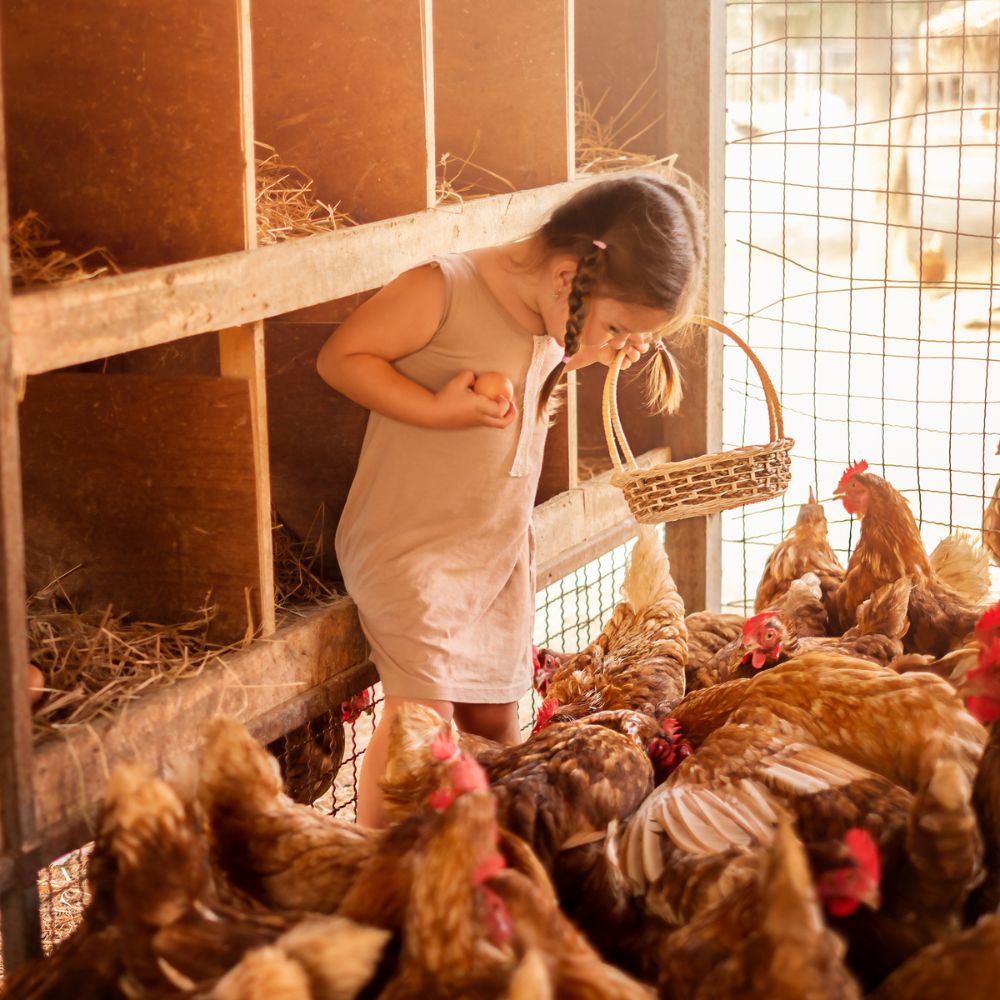
Table of Contents (Quickly Jump To Information)
Reason #1: Space
Keeping chickens has become almost en vogue around the USA. About 1% of the entire USA keeps chickens. For an era where mass unsustainable farming methods of the past seem to be on the decline, this is quite a remarkable number.
If so many people are keeping chickens, and they’re not running large farms, then where are they keeping these hens? Not every home has enough space to keep a chicken coop. Often, owners keep chickens in a small backyard or even inside their apartment.
The space question is perhaps the most important question to consider. Each chicken needs about 10 square feet of coop space to live comfortably. It’s also essential to provide a run. Not all homes have the space for them to scratch, peck, and uncover bugs and other goodies. So what then?
When space is tight, the question about chicken numbers becomes essential. If your entire property is less than 1000 square feet, it would be almost impossible to house more than a few comfortably.
Reason #2: Money
Here’s the scenario: a friend has the option to add a new animal to their home. One option is a fluffy young chicken. The other is a 17-hand horse. Both need space and attention. Both will need food and water and shelter. Both will be amazing additions to the family, and the family would enjoy either one. So which one is the better choice?
Well, compare the cost to keep a chicken to the cost to keep a horse. In this case, chickens are a far more economical option. No two ways about it, a horse is far more expensive than a single chicken.
But chickens still cost money. Setting up a coop and providing bedding isn’t free. Preparing for adequate waste disposal will cost money or time. Feed will cost money. Health checks, worming, and pest control will cost money. Buying incubators to hatch chicks will cost money. Each of these small costs adds up. Before long, you’ll realize that 50% of last month’s expenses went toward your chickens!
So, the question of what is “too many” chickens boils down to the responsible question for any pet owner. You’ll need to ask yourself, “Do I want to devote part of my income to a pet?” If the answer is yes, then that is some great news! It just might be time to increase the flock! “Too many” chickens would just be that point where the balance in the ledger crosses the line from black to red.
Reason #3: Death
Of course, this is the least enjoyable reason to add another chicken to your flock. But it’s worth considering anyway. Death is one of the hardest parts of life, but it’s unavoidable. When it happens, it can gouge away at one’s heart in ways that might not be readily apparent.
With the loss of a pet, it’s only natural to want to replace that void with a new life. This is normal, and acquiring a new pet can very often lead to a smooth recovery – or at least as smooth as one could find. A new life can add so much to a grieving heart; it is incredible.
The problem is that sometimes, we overcompensate. It’s like stress-eating. You’re overcome with stress and cope by filling your body with food. You’re momentarily less stressed and have some much-needed energy. This can easily result in a little too much and instead of easing the stress, we gorge. The body doesn’t really need all the calories that we give it. Our coping mechanism ends up putting extra stress on the body.
It’s very easy to slip into, and it can happen after your pet dies. In such an event, there must be a limit. You don’t want to end up with too many birds to easily maintain. If you need to replace your lost friend, consider just getting one. At least for a while.
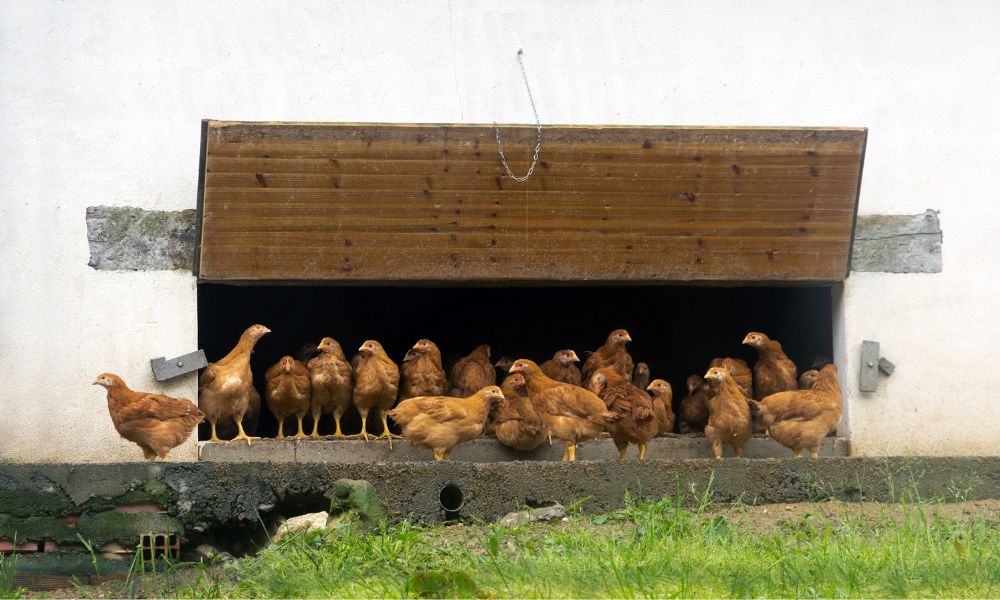
Reason #4: The Human Family
One spouse wants more, the other does not. Maybe the kids do, or they are even divided on whether to add another chicken or *gasp!* a dog. Or maybe the kids are begging the parents for more, but such conflict can put stress on the family. It’s important to think of others before adding more chickens to your flock.
Fights can happen. A strong-willed individual could get their way. But this can sometimes create resentment in the household. Resentment is a dangerous thing. If there is too much stress in the household, believe me, your chickens will pick up on it.
Like with the addition of any family member – 2-legged, 4-legged, 3-legged, 2-winged, etc. – the best approach is to discuss it. This gives everyone an equal chance to consider how the addition would change the family. It lets the unit consider both pros and cons. Sometimes an answer of “Not right now” is enough.
The best thing about “Not right now” is that it implies that “soon” another chicken might be added to the flock.
Is there a “right” answer to the idea of whether or not there are “too many” chickens? No. There are so many variables that this is an almost impossible issue. Perhaps most important to the prospective chicken owner is self-knowledge. They’ll need to ask themselves “How many is too many for me?” I’d recommend some serious consideration before the urge to add more chickens takes over.
Reason #5: The Flocking Family
If a chicken is added to a flock, it joins a complex organism that has a pre-established pecking order. It will be difficult for that bird at first, but before long, she will settle into the habit of the barnyard. She will make friends and find her own little spot on the roost.
What could possibly go wrong?
One potential problem is a particularly aggressive chicken. Chickens in general are docile creatures and interested in their bellies and the production of eggs. But there is the occasional rooster or hen that feels the need to pick on others. There might be some safety for the bullied chicken in the larger pack, but that is not always the case.
If this happens, about the only possible escape is separating the birds. If warring hens get too extreme, you might have to find a new home for either the bullied or the bully.
Reason #6: Reproducing
Probably the biggest reason for an increase in flock size is also the most obvious one: reproduction. It happens when there are both roosters and hens living together.
When springtime comes around, roosters might do a little dance that shows a lucky hen that he’s interested. This could result in a clutch of fertilized eggs. If these fertilized eggs are incubated by a broody hen they’ll result in a new batch of cute downy chicks. Once this happens, the owner then has to deal with the same question again: keep them or sell them?
There are many ways to keep chickens from reproducing. The simplest way is to have just hens. They’ll lay eggs regardless of the presence of a rooster. Alternatively, you could remove the eggs and not incubate them. This would result in no new generation of chickens.
Reason #7: Chicken Health
A coop that is overpopulated can easily lead to health problems for your poultry. Too much poo and damp conditions will lead to things like parasite overload and bacterial growth. If you have too many chickens in your space, you might just harm your chickens.
Be sure that you have enough square feet of indoor space in your pen and enough square feet of outdoor space to accommodate the number of hens you have. Consider the time of year when calculating space, they will spend more time indoors during winter and more time outdoors when it’s hot.
Also, remember to consider your chicken’s temperaments. Each breed is a little different and handles more crowded confinement in its own way. Certain breeds do better in smaller spaces than others.
Reason #8: Local Ordinances
If you live in a city, you are likely subject to local ordinances or restrictions. The most common rule issued by cities for backyard chickens is a limit such as no more than 6 hens and zero roosters. Not only that, but some cities also require you to pay for a building permit to build structures like chicken coops.
Breaking these rules could get you a fine and broken relationship with neighbors. It’s best to follow the rules (or move to a place without regulations).
Summary
I would recommend all of these things, but then… I just might have given in to the urge to the flock once or twice. For me, personally, it’s a matter of space and time. Do we want to build another coop? Do we want to spend the extra time making sure extra chickens are all healthy?
Or, do we just want to concentrate on the ones we have, and make sure their lives are as happy as possible? That’s how I decide “how many are too many”!
Chicken Care Articles
- 3 (Easy) Steps To Feeding Day Old Baby Chicks
- Why Won’t My Hens Use Their Nesting Boxes?
- Raising Backyard Hens For Eggs Is Easy!
- Get Rid Of Flies In Your Chicken Coop For Happier Hens!
- 6 Homes For Your Hens That’ll Give You Coop Envy
Maat van Uitert is a backyard chicken and sustainable living expert. She is also the author of Chickens: Naturally Raising A Sustainable Flock, which was a best seller in it’s Amazon category. Maat has been featured on NBC, CBS, AOL Finance, Community Chickens, the Huffington Post, Chickens magazine, Backyard Poultry, and Countryside Magazine. She lives on her farm in Southeast Missouri with her husband, two children, and about a million chickens and ducks. You can follow Maat on Facebook here and Instagram here.

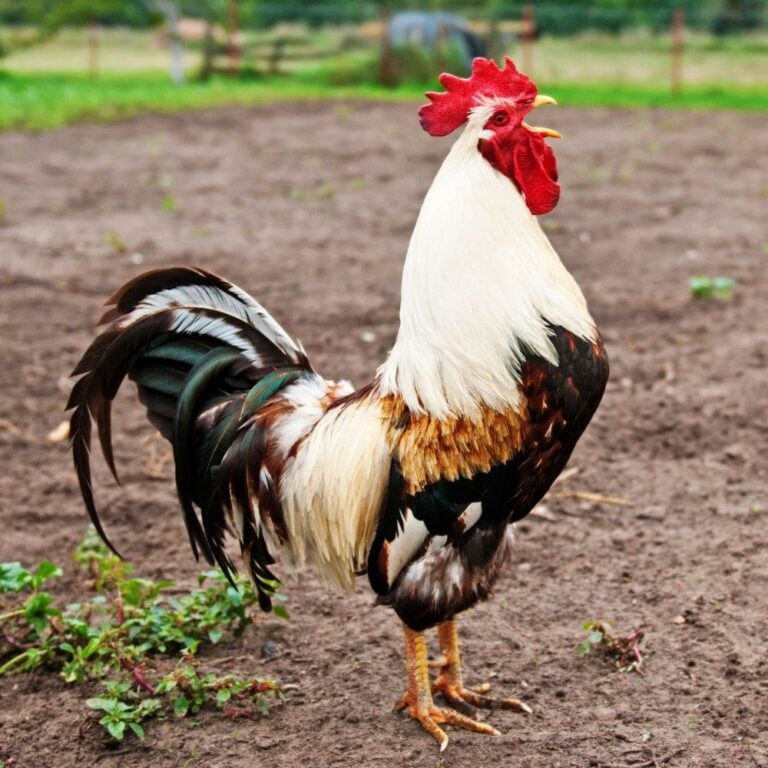
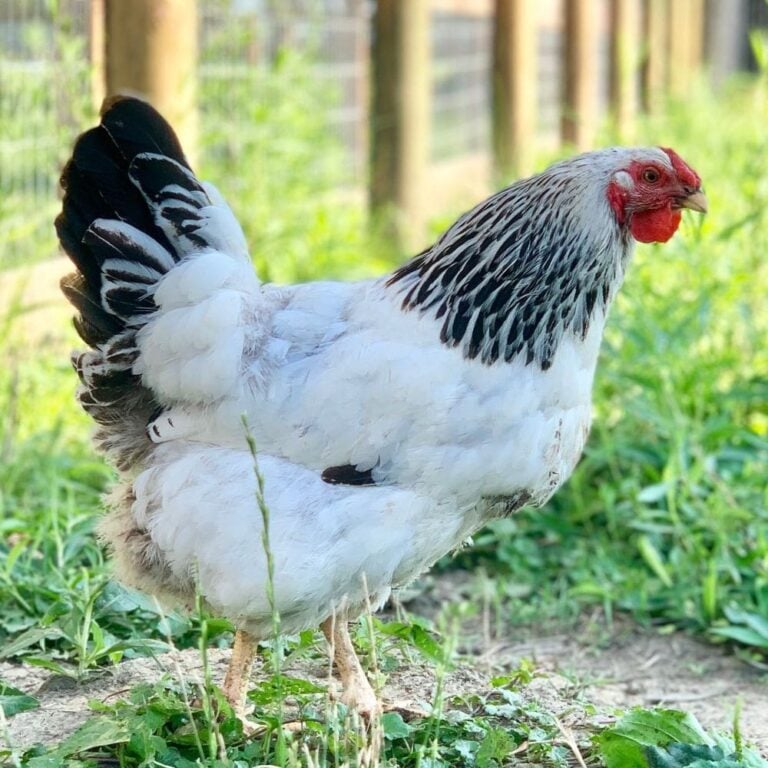


![5 Edibles You Can Feed Your Chickens For Great Tasting Eggs! [Podcast]](https://thefrugalchicken.com/wp-content/uploads/2017/01/what-to-feed-chickens-for-great-tasting-eggs.jpg)
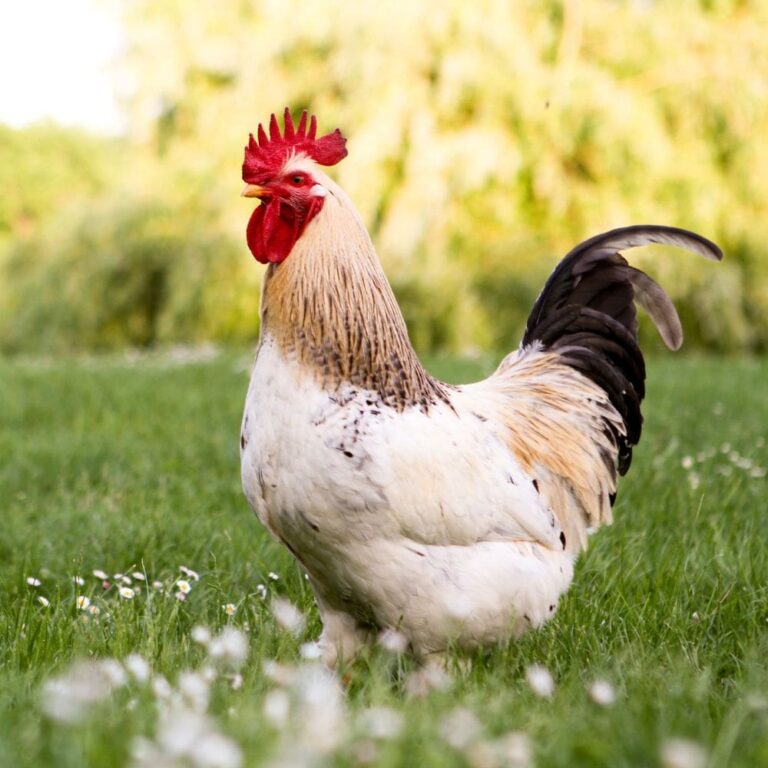
can I keep chickens and ducks tougether
Yes, you can!